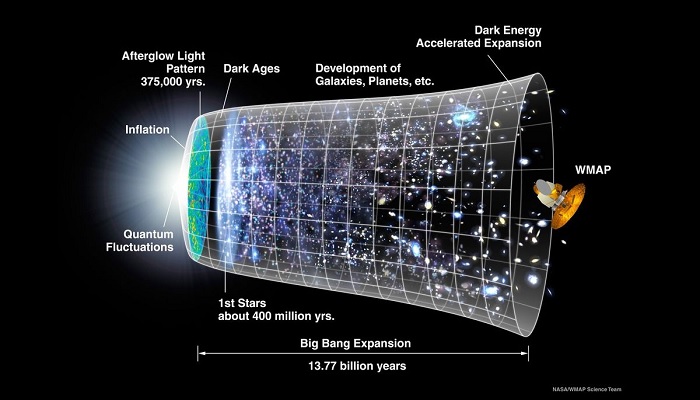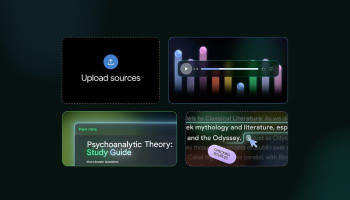
The quest to comprehend dark energy, the enigmatic force fueling the accelerated expansion of the universe, has taken a futuristic turn with scientists now exploring whether artificial intelligence (AI) can offer deeper insights.
A recent study by a team led by Niall Jeffrey from University College London, in collaboration with the Dark Energy Survey, suggests AI might indeed enhance our understanding of this cosmic mystery.
The research team used AI techniques in a supercomputer simulation, combining data on visible and dark matter. While dark energy is known for its role in propelling the universe's outward expansion, dark matter remains elusive due to its non-interaction with light.
The AI-assisted simulation produced a detailed map covering the last seven billion years, revealing the impact of dark energy on a vast scale, encapsulating about 100 million galaxies across approximately 25% of the Southern Hemisphere's sky. This mapping, representing three years of observations from the Dark Energy Survey, would have been far more daunting without AI's precision.
Jeffrey, in an interview with Space.com, noted that employing AI effectively doubled the precision in measuring dark energy compared to traditional methods. The alternative, he mentioned, would have required thrice the data amount, equivalent to charting an additional 300 million galaxies.
Dark energy remains a placeholder term for the force accelerating the cosmic expansion. Its mysterious nature dominates about 70% of the universe's energy and matter budget. The primary aim of the Dark Energy Survey, as Jeffrey states, is to determine whether dark energy is a cosmological constant or something else entirely.
This investigation into dark energy includes considering the cosmological constant, introduced by Albert Einstein, which underwent a rollercoaster of scientific acceptance. Originally introduced to support a static universe model, it was discarded when Hubble's observations suggested an expanding universe. However, the discovery of the universe's accelerating expansion in 1998 led to its reevaluation as a possible explanation for dark energy.
Jeffrey emphasised that while their results are consistent with dark energy being explained by a cosmological constant, the gap between theory and observation remains vast and puzzling. The findings suggest that general relativity might still hold, but they do not exclude other theories about dark energy and gravity.
The team's use of AI demonstrates its potential in picking out significant patterns in cosmic simulations, offering insights that might be overlooked by human researchers. However, Jeffrey cautions that AI in cosmology needs to be more than just pattern recognition, requiring a depth of understanding to discern between known and unknown factors.
The research, still in preprint on arXiv, heralds a new era in cosmic exploration, with AI playing a pivotal role. It opens up the possibility of more realistic simulations and refined cosmological models, potentially bringing scientists closer to unravelling the enigma of dark energy.
















